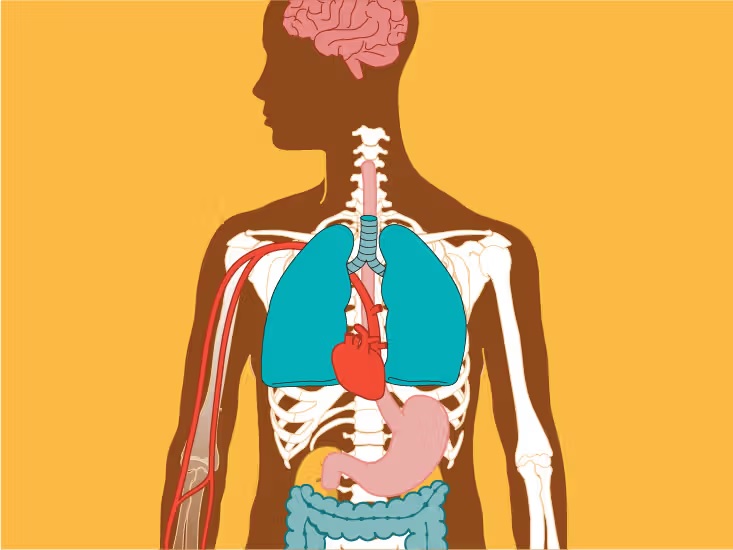Alcohol addiction is a widespread issue affecting millions of individuals worldwide. While social drinking can be a common occurrence, excessive alcohol consumption leading to addiction can have severe repercussions on one’s health. From physical to mental well-being, the effects of alcohol addiction can be pervasive and detrimental. Understanding these impacts is crucial in recognizing the importance of seeking help and treatment. Here are five ways alcohol addiction can affect your overall health:
Liver Damage:
Alcohol addiction wreaks havoc on the liver, a vital organ responsible for filtering toxins. With prolonged abuse, the liver becomes inflamed, paving the way for fatty liver disease, hepatitis, and the ominous specter of cirrhosis. Cirrhosis, marked by the replacement of healthy liver tissue with scar tissue, jeopardizes liver function and may culminate in liver failure. The toll taken on the liver by alcohol addiction is not only severe but often irreversible, posing a grave threat to one’s existence. Moreover, liver damage can lead to complications such as jaundice, ascites, and hepatic encephalopathy, further exacerbating the health consequences of alcohol addiction.
Cardiovascular Problems:
The cardiovascular system bears the brunt of chronic alcohol abuse, manifesting in a plethora of issues. Excessive drinking elevates blood pressure, disrupts heart rhythm, and instigates cardiomyopathy, where the heart muscles weaken. Furthermore, the risk of stroke and heart attack skyrockets as alcohol contributes to arterial plaque buildup, leading to atherosclerosis. Such cardiovascular complications pose imminent dangers, compromising overall heart health and underscoring the dire consequences of alcohol addiction. Additionally, alcohol-induced heart problems can result in edema, chest pain, and heart failure, diminishing quality of life and increasing mortality risk.
Mental Health Disorders:
Alcohol addiction not only impacts physical health but also greatly affects mental well-being. Prolonged alcohol abuse is linked to various mental health disorders, including depression, anxiety, and even psychosis. Alcohol acts as a depressant on the central nervous system, altering neurotransmitter levels in the brain. Over time, this can lead to imbalances in brain chemistry, exacerbating existing mental health issues or triggering new ones. Moreover, alcohol addiction often co-occurs with other mental health disorders, creating a complex web of challenges for individuals struggling with addiction. Therefore, if you are facing mental disorders alongside alcohol addiction, it is important to consider medication-assisted treatment (MAT) as part of your recovery plan. MAT combines behavioral therapy with medications approved by the FDA to treat alcohol dependence, helping to manage cravings, and withdrawal symptoms and stabilize mood. Furthermore, the stigma associated with mental health issues and addiction can exacerbate feelings of isolation and shame, hindering individuals from seeking help and exacerbating their conditions.
Weakened Immune System:
Excessive alcohol consumption weakens the immune system, making the body more susceptible to infections and illnesses. Alcohol interferes with the production and function of immune cells, impairing the body’s ability to defend against pathogens. Chronic drinkers are more prone to respiratory infections, pneumonia, tuberculosis, and other infectious diseases. Additionally, alcohol abuse can delay wound healing and increase the risk of complications following injuries or surgeries. A weakened immune system not only affects physical health but also diminishes the body’s capacity to recover from illness or injury. Moreover, compromised immunity can exacerbate chronic conditions like autoimmune disorders and increase susceptibility to opportunistic infections, posing significant health risks.
Nutritional Deficiencies:
Alcohol addiction often leads to poor dietary habits and nutritional deficiencies. Heavy drinkers may neglect proper nutrition, opting for alcohol over balanced meals. Moreover, alcohol interferes with the absorption of essential nutrients, such as vitamins B1, B6, B12, and folic acid. Chronic alcohol abuse can result in malnutrition, leading to deficiencies that contribute to a range of health problems, including nerve damage, anemia, and weakened bones. Furthermore, malnutrition can exacerbate existing health issues and hinder the body’s ability to repair and maintain itself, perpetuating a cycle of poor health. Additionally, alcohol-related nutritional deficiencies can lead to cognitive impairment, muscle weakness, and gastrointestinal disorders, further compromising overall well-being.
Conclusion
In conclusion, alcohol addiction exerts a profound and far-reaching impact on overall health. From damaging vital organs like the liver and heart to exacerbating mental health disorders and weakening the immune system, the consequences of alcohol addiction are extensive and severe. Recognizing these effects is crucial in addressing the issue and seeking appropriate treatment and support. Overcoming alcohol addiction requires a comprehensive approach that addresses both the physical and psychological aspects of the condition. By acknowledging the toll alcohol addiction takes on health and well-being, individuals can take proactive steps towards recovery and reclaiming their lives.
